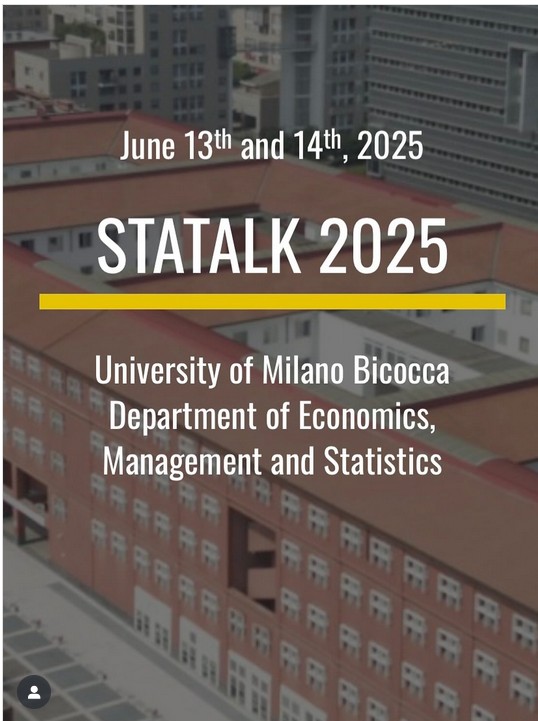







13-14 June 2025 Milan, Italy
StaTalk is a free conference organised by the young section of the Italian Statistical Society (y-SIS), dedicated to fostering collaboration and idea exchange among early-career researchers and students from diverse fields. Eleonora Miaci, a young member of the AVRAI research team, presented some results from the ItRAS survey.
Miaci, E., Cela, E., Barbiano di Belgiojoso, E., Ambrosini, M. (2025) “Health and Vulnerability Among Refugees in Italy: Exploring Self-Rated Health, Mental Health, and Unmet Health Needs”.
Abstract: Unlike general migrants, asylum seekers and refugees (AS&R) are typically less positively selected in terms of health. Their health challenges often arise from pre-migration trauma, difficult journeys, and post-arrival vulnerabilities, yet they remain under-researched in Italy. This study addresses this gap by examining self-rated health, mental health, and unmet healthcare needs among AS&R, in relation to socio-demographic factors and multiple dimensions of vulnerability. We use data from the AVRAI project, which collected responses from 1,327 AS&R through the ITRAS survey (April–July 2024). Logistic regression models assess the impact of gender, economic deprivation, discrimination, length of stay, and social network composition on three key outcomes: self-rated health (SRH), mental health (MH), and unmet healthcare needs. Findings highlights that economic deprivation, discrimination, female gender, and older age are correlate with poorer SRH and greater healthcare access difficulties. Strong Italian social networks are positively associated with better SRH and MH, while non-Italian networks offer limited benefits. Nationality also plays a role: individuals from Egypt, Nigeria, Pakistan, Ukraine, and Eritrea report better SRH than those from Bangladesh. These findings underscore the importance of addressing structural barriers to healthcare, tackling discrimination, and promoting inclusive social integration. Policies should prioritize gender-sensitive care, economic empowerment, and the development of diverse support networks to improve refugee health outcomes in Italy.
https://sites.google.com/view/statalk2025dems-unimib/program
“Health and Vulnerability Among Refugees in Italy: Exploring Self-Rated Health, Mental Health, and Unmet Health Needs.”
Eleonora Miaci, Eralba Cela, Elisa Barbiano di Belgiojoso, Maurizio Ambrosini
Abstract: This study explores self-rated health, mental health, and unmet health needs among asylum seekers and refugees in Italy, using the unique ITRAS dataset collected in 2024 (N=1,327). Findings highlight the protective role of social support networks and the negative impact of discrimination and age on perceived health. Results underscore the need to address vulnerability in refugee health policies.
